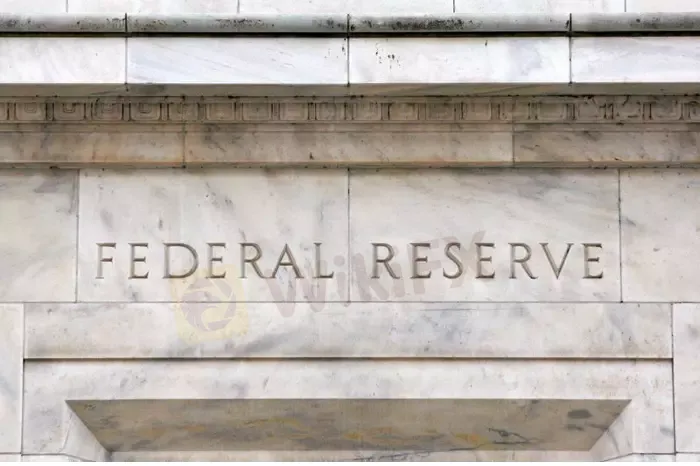简体中文
繁體中文
English
Pусский
日本語
ภาษาไทย
Tiếng Việt
Bahasa Indonesia
Español
हिन्दी
Filippiiniläinen
Français
Deutsch
Português
Türkçe
한국어
العربية
Marketmind: Just an illusion
Abstract:A look at the day ahead in markets from Anshuman Daga

Lingering worries about a big U.S. slowdown were blown away last Friday after July payrolls data smashed market expectations.
With employers adding 528,000 jobs and analysts pointing to the Feds data-driven approach, markets are now pricing in a 70% chance of a 75 basis points hike in September, up from about 41% before the data.
This has brought markets full circle after equity bulls had boosted U.S. stocks to two-week highs, pushing them from 2020 lows, as growth worries trounced inflation risks.
Still, the blockbuster jobs data adds to the possibility of a central-bank-induced slowing next year as surging labor costs limit disinflation while flattening profit margins, JPMorgans economists said.
And dollar sceptics have their own reasons.
Westpac economist Elliot Clarke believes the retreat of the DXY index from 2022 highs is only the beginning of its downtrend for the next 18 months.
He says that on a two-to-three year view, the U.S. is increasingly at risk of stagnation due to weak consumption and investment, while the euro zone is showing resilience.
U.S. CPI data out on Wednesday could be the clincher for the next big move as central banks wrestle with multi-decade high inflation.
Hopes of an agressive Fed strengthened the dollar further on Monday and Treasury yields also rose, but oil prices were stuck near multi-month lows, more influenced by a slow recovery in Chinas crude imports.
Equity markets fell and S&P 500 futures and Nasdaq futures also retreated.
And in news that could provide relief to European travellers, a board member of German airline Lufthansa said the worst flight chaos is over.
Also, in Hong Kong, which has suffered from one of the worlds most stringent COVID-19 restrictions, authorities cut COVID quarantine to three days in hotel from seven for incoming travellers.
Graphic: Unemployment rate and change in non-farm payrolls for the United States, https://graphics.reuters.com/USA-ECONOMY-JOBS/010011CJ4GM/us-unemployment.jpg Key developments that could influence markets on Monday:
Feds Bowman: more 75 basis-point hikes should be on the table
Asia shares subdued, dollar encouraged by U.S. rate risk: [MKTS/GLOB]
Chinas exports gain steam but outlook cloudy as global growth cools:

Disclaimer:
The views in this article only represent the author's personal views, and do not constitute investment advice on this platform. This platform does not guarantee the accuracy, completeness and timeliness of the information in the article, and will not be liable for any loss caused by the use of or reliance on the information in the article.
Read more

The Ultimate Guide to Automated Forex Trading in 2025
Modern markets are revolutionized by automated trading systems, which now execute 70-85% of all transactions. These advanced automated trading software solutions, commonly called trading robots or Expert Advisors (EAs), leverage algorithmic precision for automatic trading across forex, stocks, and commodities 24/7. By removing emotional interference and executing trades in microseconds, auto forex trading platforms create fair opportunities for all market participants. For those new to automated trading for beginners, these systems provide disciplined, backtested strategies while significantly reducing manual effort.

Will natural disasters have an impact on the forex market?
The forex market is known for its rapid responses to global events, but the influence of natural disasters, such as earthquakes and typhoons, can be less straightforward. While headlines may scream about catastrophic damage and economic disruption, the long-term effects on currency values often depend on a blend of immediate shock and underlying economic fundamentals.

Philippines Deports 29 Indonesians Linked to Online Scam Syndicate in Manila
Online scam groups in the Philippines trick Filipinos into gambling and love scams, from Manila to Bacolod, causing trafficking and pain as police fight back.

Why does your mood hinder you from getting the maximum return from an investment?
Investment decisions are rarely made in a vacuum. Aside from the objective data and market trends, our emotions—and our overall mood—play a crucial role in shaping our financial outcomes. Whether you’re feeling overconfident after a win or anxious after a loss, these emotional states can skew your decision-making process, ultimately affecting your investment returns.
WikiFX Broker
Latest News
How Crypto Trading Transforms FX and CFD Brokerage Industry
UK would not hesitate to retaliate against US tariffs - No 10 sources
FCA Warns Against 10 Unlicensed or Clone Firms
CySEC Warns Against 14 Unlicensed Investment Websites
Top Currency Pairs to Watch for Profit This Week - March 31, 2025
Will natural disasters have an impact on the forex market?
Philippines Deports 29 Indonesians Linked to Online Scam Syndicate in Manila
Navigating the Intersection of Forex Markets, AI Technology, and Fintech
Exposed: Deceptive World of Fake Trading Gurus – Don’t Get Fooled!
AI-Powered Strategies to Improve Profits in Forex Trading
Currency Calculator







